News in Brief
-
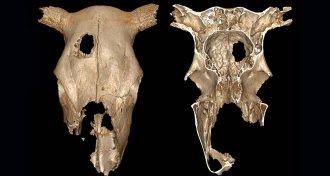 Anthropology
AnthropologyA hole in an ancient cow’s skull could have been surgery practice
Before performing skull operations on people, ancient surgeons may have rehearsed on cows.
By Bruce Bower -
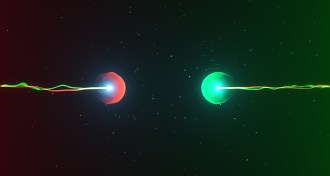 Chemistry
ChemistryUsing laser tweezers, chemists nudged two atoms to bond
This is the first time researchers have purposefully combined two specific atoms into a molecule.
-
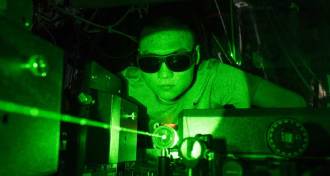 Physics
PhysicsA key constant’s new measurement hints ‘dark photons’ don’t exist
New measurement of the fine-structure constant is the most precise yet.
-
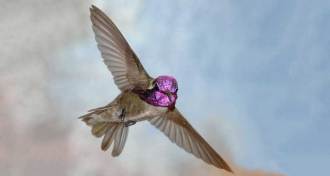 Animals
AnimalsThese hummingbirds aim their singing tail feathers to wow mates
Acoustic cameras reveal how male Costa’s hummingbirds can aim the sound produced by fluttering tail feathers during courtship dives.
By Susan Milius -
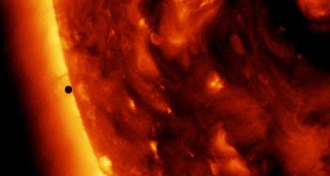 Physics
PhysicsEinstein’s general relativity reveals new quirk of Mercury’s orbit
A tiny effect of general relativity on Mercury’s orbit has been calculated for the first time.
-
 Microbes
MicrobesThis material uses energy from ambient light to kill hospital superbugs
A quantum dot–powered material could help reduce the number of hospital-acquired infections, including those with drug-resistant bacteria.
-
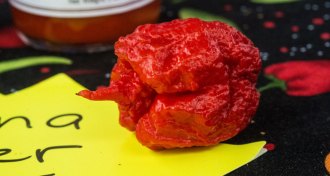 Health & Medicine
Health & MedicineWorld’s hottest pepper may have triggered this man’s severe headaches
A man ate one of the hottest peppers in the world. About a minute later, his head began pounding.
By Dan Garisto -
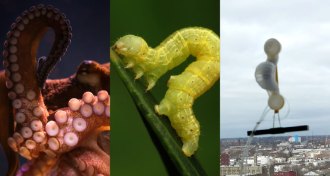 Tech
TechA new soft bot mimics octopuses and inchworms to climb walls
A new soft robot that scales walls could help with surveillance or building inspections.
-
 Tech
TechSheets of tiny bubbles could bring a sense of touch to virtual reality
Shape-shifting films used in sleeves or other garments could provide tactile feedback that makes virtual realities feel more real.
-
 Astronomy
AstronomyDark matter isn’t interacting with itself after all
Hints that a distant galactic collision knocked dark matter askew fizzled with new observations.
-
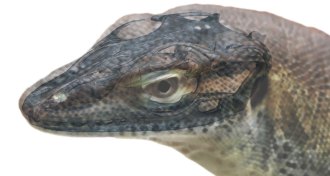 Paleontology
PaleontologyThis ancient lizard may have watched the world through four eyes
A lizard that lived 50 million years ago had both a third and a fourth eye.
-
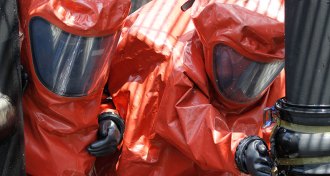 Materials Science
Materials ScienceToxic chemicals turn a new material from porous to protective
A new material switches from a comfortable, breathable form to a sealed-up, protective state when exposed to dangerous chemicals.